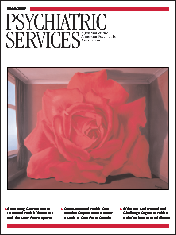The Art and Science of Brief Psychotherapies: A Practitioner's Guide to Core Competencies in Psychotherapy
Physicians have long relied on the apprenticeship model to train their young. Short on didactics, long on learning by doing, teaching has often been provided by someone who just saw one or did one. Psychotherapy was an exception. Experienced supervisors who were trained rigorously and grounded in experience and theory sat one-on-one with new residents and taught them a craft. Of course there were problems, and those problems led to the demise of psychotherapy in many residency training programs across the country.
But the pendulum, as pendulums are wont to do, is now swinging the other way. The Residency Review Committee for Psychiatry, the body that accredits psychiatric residencies, has now set competency requirements in various psychotherapies. Residencies across the country are now trying to replant what had withered or been razed. To help them, American Psychiatric Publishing has published four books in the "Core Competencies in Psychotherapy" series, of which The Art and Science of Brief Psychotherapies: A Practitioner's Guide to Core Competencies in Psychotherapy is one.
This book's stated goal is to "provide not only a book about brief therapy but also a guide to doing brief work" by giving "readers a taste of different brief therapies and their underlying strengths and weaknesses." The first and final chapters serve as bookends to the body of the text, holding together what is essentially a brief anthology of "Six Key Brief Psychotherapies" and related "Special Topics." Cognitive, behavioral, solution-focused, interpersonal, time-limited dynamic, and brief couples therapy are each presented in turn, including what each therapy is, how it is done, what to watch out for, and who it is that the therapy is for. Case examples are used to highlight key points and to translate theory into practice. The "Special Topics" section covers domains that cut across the therapies, including "Essential Ingredients for Successful Psychotherapy," "Brief Psychotherapy in a Multicultural Context," "Combining Brief Psychotherapy and Medications," and, for educators, "Evaluating Competence in Brief Psychotherapy."
The book's strengths and weaknesses are inherent in its reason for being. It is designed to meet the requirements of an accrediting body, so there are multiple editors and authors (19 of them), who present information in a technical, impersonal fashion (the chapter on solution-focused therapy being a notable exception). The book is short on the "Art" component of the title, which can make it difficult for the reader who wants to approach the book as an introduction to be read from beginning to end for the purposes of general interest, delight, and edification. However, the book's primary audience is the busy psychiatric resident who is attempting to begin to obtain competency in brief therapy as well as faculty members who are given the barely charted and at times bewildering task of assessment. For them, the book succinctly and articulately offers principles to learn and examples to study. In this way it is a useful introduction and guide, and, in the words of its series editor, "a valuable adjunct to the traditional methods of psychotherapy education."
Dr. Jarvis is vice-chair in the department of psychiatry of the University of Missouri-Kansas City School of Medicine.



